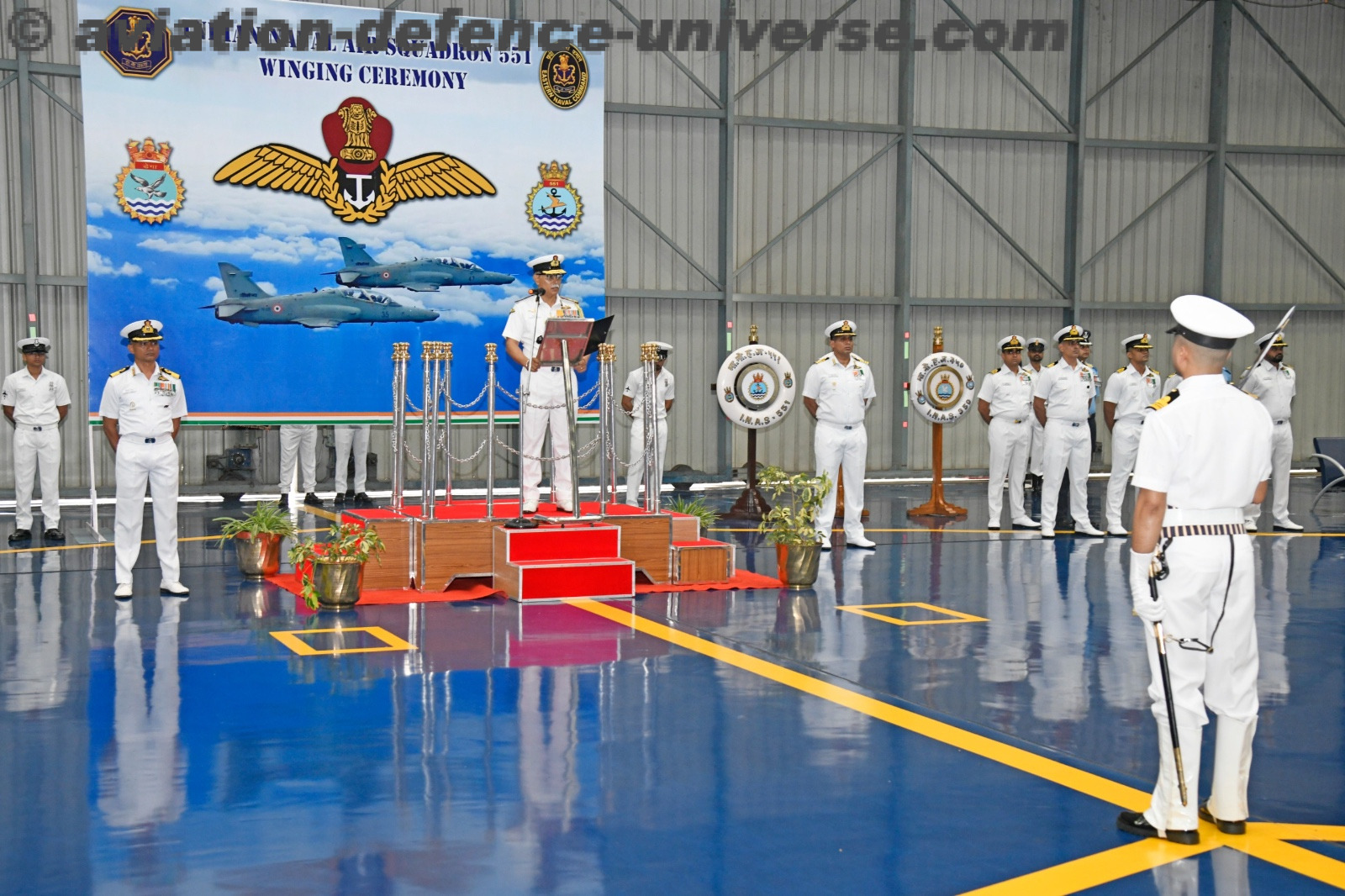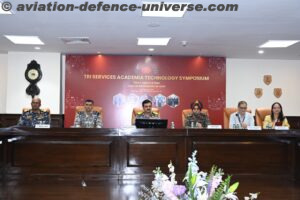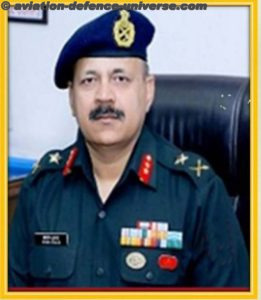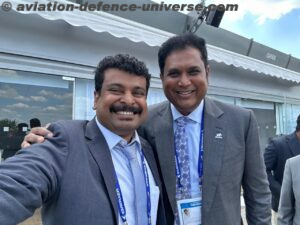Asia Pacific Homeland Security (APHS) 2015
By Brig. Vijay Atray
SINGAPORE, 27 October, 2015. The inaugural Asia Pacific Homeland Security Conference got underway and the international industry experts called for increased regional and multi-sector collaboration to strengthen urban resilience in the region.
 Taking place in Singapore, APHS 2015 is the region’s first conference and exhibition devoted to homeland and civil security. It was held at Marina Bay Sands from 27 – 30 October 2015, with the remaining three days focusing on exhibitions where global companies showcased their security solutions, products, facilities and systems. to representatives from governments, international organisations, institutions and public bodies as well as NGOs and other private sector companies.
Taking place in Singapore, APHS 2015 is the region’s first conference and exhibition devoted to homeland and civil security. It was held at Marina Bay Sands from 27 – 30 October 2015, with the remaining three days focusing on exhibitions where global companies showcased their security solutions, products, facilities and systems. to representatives from governments, international organisations, institutions and public bodies as well as NGOs and other private sector companies.
Conference proceedings began with a keynote address by Mr Christian Sommade, Director of the French High Committee for Civil Defence, before Part I of the Conference focused on “How to approach Resilience”.
 During his presentation on “Making Critical Infrastructures More Resilient”, Dr Stephen Brem, Head of Risk Analysis and Research Coordination at the Federal Office for Civil Protection in Switzerland, highlighted the rising need for countries to strengthen their resilience given the various global developments and trends taking place today.
During his presentation on “Making Critical Infrastructures More Resilient”, Dr Stephen Brem, Head of Risk Analysis and Research Coordination at the Federal Office for Civil Protection in Switzerland, highlighted the rising need for countries to strengthen their resilience given the various global developments and trends taking place today.
“We’re now seeing global supply and production chains becoming more interconnected than ever and there is also an increased mobility of people, goods, money and ideas. With this, countries are now more exposed to different varieties of hazards and threats – and this creates new challenges for risk management.
 “Countries need to start approaching risk analysis differently and look at how the civil society can work together with the public and private sectors to increase their levels of preparedness towards hazards and threats. Governments need to be able to coordinate and delegate responsibly between specialised administrative units, public and private interests, and society and market in-trends to ensure improved resilience,” said Dr Brem.
“Countries need to start approaching risk analysis differently and look at how the civil society can work together with the public and private sectors to increase their levels of preparedness towards hazards and threats. Governments need to be able to coordinate and delegate responsibly between specialised administrative units, public and private interests, and society and market in-trends to ensure improved resilience,” said Dr Brem.
Part II got underway in the afternoon and focused on lessons learnt from recent events such as the Erawan Shrine blast in Bangkok and the Great East Japan earthquake.
Mr Takahiro Ono, visiting researcher at the Asian Disaster Reduction Centre in Kobe, Japan, noted the importance of countries having solid business continuity plans in response to risks and disasters to maintain the permanence of critical operations in the country.
 “Local governments need to work hand-in-hand with the private sector to establish business continuity plans, especially for the private sector in their respective countries, as they are key to the resilience of the community. Developing a strong business continuity plan alongside the private sector can help ensure the stability of society and economy and allow for businesses to operate normally, which can then help mitigate any challenges in the wake of disaster situations like earthquakes and typhoons,” said Mr Ono.
“Local governments need to work hand-in-hand with the private sector to establish business continuity plans, especially for the private sector in their respective countries, as they are key to the resilience of the community. Developing a strong business continuity plan alongside the private sector can help ensure the stability of society and economy and allow for businesses to operate normally, which can then help mitigate any challenges in the wake of disaster situations like earthquakes and typhoons,” said Mr Ono.
The final segment of the conference looked further ahead and noted speakers delivered presentations on how to implement resilience in preparation for potential events in the future.
 It was clearly & loudly suggested by all the speakers that for disaster management,counter terrorism and risk management the govt has a major role to play as far as the planning,organisation & coordination is concerned but the other stake holders viz Public & Private Sectors, Intelligence & security agenciess etc have an equally important role to play.Great emphasis was laid on the involvement of public at large who are or are likely to be impacted. Media would play a vital role to collect information from affected locations As also to educate the public.It was felt that the role of social media has become equally important, though it was considered not very accurate & reliable.
It was clearly & loudly suggested by all the speakers that for disaster management,counter terrorism and risk management the govt has a major role to play as far as the planning,organisation & coordination is concerned but the other stake holders viz Public & Private Sectors, Intelligence & security agenciess etc have an equally important role to play.Great emphasis was laid on the involvement of public at large who are or are likely to be impacted. Media would play a vital role to collect information from affected locations As also to educate the public.It was felt that the role of social media has become equally important, though it was considered not very accurate & reliable.
The Exhibition from.28th to 30th Oct had exhibitors mainly from Germany ,France, Australia,,UAE &Singapore. Most of the equipment was using robototics, remote controlled ,radio frequency techniques; the concept being to use the equipment in hostile environment without causing casualty to own forces/personnel. APHS 2015 is organised by COGES Asia, helmed by the team behind Eurosatory, which has been ranked among the world’s largest and most established land and air-land defence shows for several decades.
 Taking place in Singapore, APHS 2015 is the region’s first conference and exhibition devoted to homeland and civil security. It was held at Marina Bay Sands from 27 – 30 October 2015, with the remaining three days focusing on exhibitions where global companies showcased their security solutions, products, facilities and systems. to representatives from governments, international organisations, institutions and public bodies as well as NGOs and other private sector companies.
Taking place in Singapore, APHS 2015 is the region’s first conference and exhibition devoted to homeland and civil security. It was held at Marina Bay Sands from 27 – 30 October 2015, with the remaining three days focusing on exhibitions where global companies showcased their security solutions, products, facilities and systems. to representatives from governments, international organisations, institutions and public bodies as well as NGOs and other private sector companies. During his presentation on “Making Critical Infrastructures More Resilient”, Dr Stephen Brem, Head of Risk Analysis and Research Coordination at the Federal Office for Civil Protection in Switzerland, highlighted the rising need for countries to strengthen their resilience given the various global developments and trends taking place today.
During his presentation on “Making Critical Infrastructures More Resilient”, Dr Stephen Brem, Head of Risk Analysis and Research Coordination at the Federal Office for Civil Protection in Switzerland, highlighted the rising need for countries to strengthen their resilience given the various global developments and trends taking place today. “Countries need to start approaching risk analysis differently and look at how the civil society can work together with the public and private sectors to increase their levels of preparedness towards hazards and threats. Governments need to be able to coordinate and delegate responsibly between specialised administrative units, public and private interests, and society and market in-trends to ensure improved resilience,” said Dr Brem.
“Countries need to start approaching risk analysis differently and look at how the civil society can work together with the public and private sectors to increase their levels of preparedness towards hazards and threats. Governments need to be able to coordinate and delegate responsibly between specialised administrative units, public and private interests, and society and market in-trends to ensure improved resilience,” said Dr Brem.  “Local governments need to work hand-in-hand with the private sector to establish business continuity plans, especially for the private sector in their respective countries, as they are key to the resilience of the community. Developing a strong business continuity plan alongside the private sector can help ensure the stability of society and economy and allow for businesses to operate normally, which can then help mitigate any challenges in the wake of disaster situations like earthquakes and typhoons,” said Mr Ono.
“Local governments need to work hand-in-hand with the private sector to establish business continuity plans, especially for the private sector in their respective countries, as they are key to the resilience of the community. Developing a strong business continuity plan alongside the private sector can help ensure the stability of society and economy and allow for businesses to operate normally, which can then help mitigate any challenges in the wake of disaster situations like earthquakes and typhoons,” said Mr Ono. It was clearly & loudly suggested by all the speakers that for disaster management,counter terrorism and risk management the govt has a major role to play as far as the planning,organisation & coordination is concerned but the other stake holders viz Public & Private Sectors, Intelligence & security agenciess etc have an equally important role to play.Great emphasis was laid on the involvement of public at large who are or are likely to be impacted. Media would play a vital role to collect information from affected locations As also to educate the public.It was felt that the role of social media has become equally important, though it was considered not very accurate & reliable.
It was clearly & loudly suggested by all the speakers that for disaster management,counter terrorism and risk management the govt has a major role to play as far as the planning,organisation & coordination is concerned but the other stake holders viz Public & Private Sectors, Intelligence & security agenciess etc have an equally important role to play.Great emphasis was laid on the involvement of public at large who are or are likely to be impacted. Media would play a vital role to collect information from affected locations As also to educate the public.It was felt that the role of social media has become equally important, though it was considered not very accurate & reliable. 

























































































































